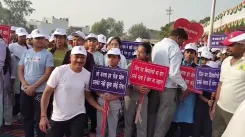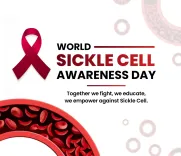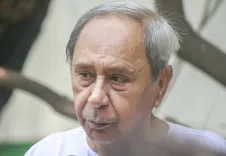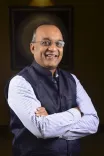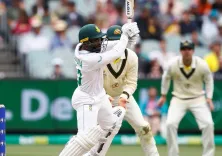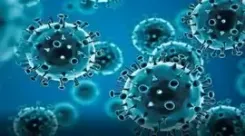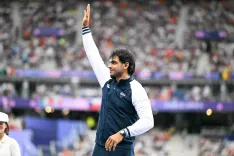How Have PM Modi’s Healthcare Reforms Benefited the Poor?

Synopsis
Key Takeaways
- Healthcare reforms under PM Modi have focused on inclusivity.
- Ayushman Bharat scheme provides free treatment to the poor.
- Medical education facilities have significantly expanded.
- Initiatives like Fit India promote holistic health.
- Future plans include more medical institutions nationwide.
Bengaluru, June 20 (NationPress) Union Home Minister Amit Shah emphasized that the significant health sector initiatives by the Centre have greatly aided the population, especially the disadvantaged and underprivileged communities. This statement was made during the inauguration of the Bengaluru campus of Adichunchanagiri University and BGS Medical College and Hospital on Friday.
The inauguration event, hosted by the Sri Adichunchanagiri Mahasamsthana Math, took place at the BGS MCH Campus located in Nagarur, on the outskirts of Bengaluru.
Among the attendees were Union Minister for Heavy Industries and Steel, the Union Minister of State for Jal Shakti and Railways V. Somanna, Leader of the Opposition R. Ashoka, and several other distinguished guests.
Amit Shah inaugurated the university campus, medical college, and hospital by lighting the ceremonial lamp alongside Swami Nirmalanandanatha Swamiji, the head of the Sri Adichunchanagiri Mahasamsthana Math.
In his address, Amit Shah praised the Math's commitment to education, stating, “Our philosophy revolves around serving others. It is the heart of our culture. I commend Swami Nirmalanandanatha Swamiji for his dedication to serving all segments of society.”
He continued, “They have developed an educational facility at an investment of around Rs 200 crore on 17 acres, with a built-up area of 20,000 square feet to accommodate 4,000 students. A state-of-the-art 1,000-bed hospital has also been established, featuring super-specialty services. Notably, the hospital offers free and subsidized treatment for the poor, while education is available at reasonable costs. I am confident this institution will evolve into one of the largest in the nation.”
“Twenty-six years ago, Prime Minister Narendra Modi articulated in Gujarat that poverty is rooted in illness, and illness arises from exorbitant treatment costs. He stressed the necessity for governmental assistance in healthcare access for the poor. Today, I proudly assert that when Narendra Modi ascended to the Prime Ministership, he honored this commitment,” Shah remarked.
“Currently, 60 crore individuals from economically weaker sections receive complimentary medical treatment up to Rs 5 lakh under the Ayushman Bharat scheme. Prime Minister Modi has approached health challenges comprehensively. He constructed approximately 12 lakh toilets, initiated the Fit India Movement, established International Yoga Day, launched Mission Indradhanush for free vaccinations, and introduced Poshan Abhiyan to support mothers and children. The promotion of generic medicines allows people to purchase medications at merely 20% of their original prices at 15,000 locations,” he elucidated.
He added, “From prenatal care through to adulthood, provisions are made to avert illness. If someone does fall ill, affordable treatment is accessible — this exemplifies Prime Minister Modi's vision.”
Amit Shah also highlighted the advancement of medical education and the supply of doctors in India. “Previously, the nation had only seven AIIMS institutions — now there are 23. The total number of medical colleges has surged from 387 to 780. MBBS seats have escalated from 51,000 to 1.80 lakh, while postgraduate seats have risen from 31,000 to 74,000. This translates to 1.18 lakh new MBBS graduates and 74,000 postgraduate doctors annually, compared to just 50,000 earlier,” he noted.
Union Minister for Heavy Industries and Steel H.D. Kumaraswamy remarked that the Central government, under Prime Minister Narendra Modi's leadership and Amit Shah's guidance, is dedicated to national development. “I stand here today as a Union Minister due to Amit Shah Ji. Whenever I confront challenges in my role, I seek his advice. We will systematically tackle Karnataka’s issues,” he stated.
Minister for Medical Education Sharan Prakash Patil highlighted Karnataka's leadership in medical education seats nationwide. “I express gratitude to our predecessors who laid the groundwork for this progress in the 1960s and 70s. Today, we are reaping the rewards of their foresight. There are 70 medical colleges in the state, including 24 government institutions,” he noted.
“Permitting private involvement in medical education was a pivotal decision. By founding engineering colleges, we fostered an environment that enabled Bengaluru to become the IT hub. However, there remains a shortage of doctors. Approximately 24 lakh students sit for NEET each year, contending for just one lakh seats,” he added.
Minister Patil further stated, “We are producing not just doctors for our state or country — our medical professionals are in high demand internationally. India needs to encourage the establishment of more medical colleges, and I have expressed this to Amit Shah Ji.”
“Our government aspires to set up a medical college, super-specialty hospital, and cancer care center in every district headquarters. The need for more doctors in the country is pressing,” he concluded.
Swami Paramatmananda Saraswatiji of Arsha Vidya Mandir, Rajkot, and Madara Channaiah Swamiji of Madara Chennaiah Gurupeeta, Chitradurga, were present.


